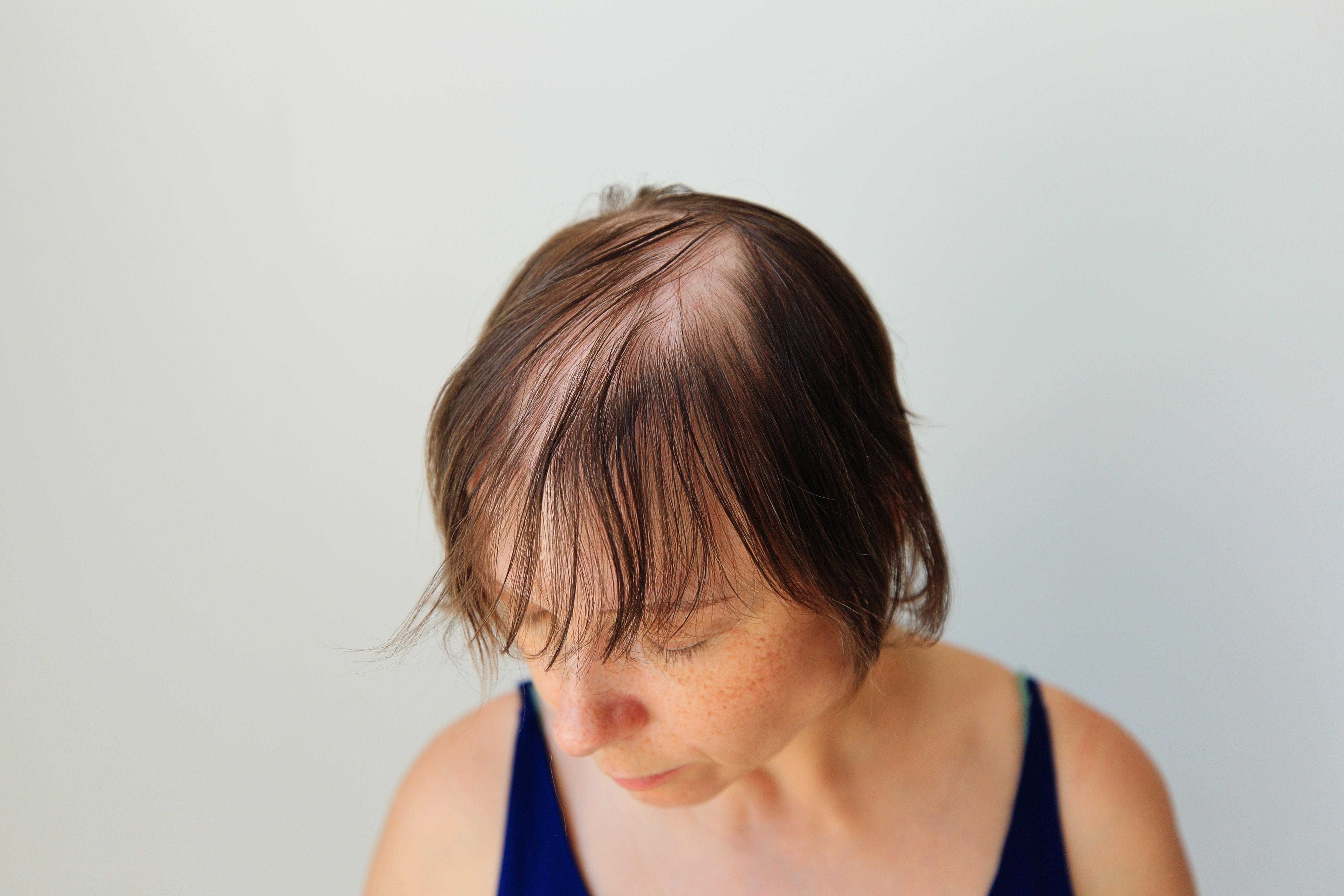- General Dermatology
- Eczema
- Alopecia
- Aesthetics
- Vitiligo
- COVID-19
- Actinic Keratosis
- Precision Medicine and Biologics
- Rare Disease
- Wound Care
- Rosacea
- Psoriasis
- Psoriatic Arthritis
- Atopic Dermatitis
- Melasma
- NP and PA
- Skin Cancer
- Hidradenitis Suppurativa
- Drug Watch
- Pigmentary Disorders
- Acne
- Pediatric Dermatology
- Practice Management
A New Consensus on Assessing Alopecia
The global Alopecia Areata Severity and Morbidity Index (ASAMI) Study identified factors including scalp hair loss and other outcomes to use when determining the extent of the condition.
Nadya Kolobova/AdobeStock

A consensus statement recently published in JAMA Dermatology, the Alopecia Areata Severity and Morbidity Index (ASAMI) Study, identified several key factors associated with alopecia areata (AA) severity independent of scalp hair loss in an effort to develop a new tool to quantify AA’s multiple effects on patients.1
The consensus survey study group noted that commonly used measures of AA severity, such as the Severity of Alopecia Tool (SALT), “have predominantly focused on the extent of scalp hair loss, without consideration of non–scalp hair loss or the psychosocial domains of disease.
“Recently, multidimensional assessment tools such as the Alopecia Areata Severity Scale have been proposed in an attempt to capture the multiple patient- and illness-related domains of AA,” the group wrote.
To arrive at the consensus, 74 hair and scalp disorder specialists from multiple continents were invited to participate in 3 rounds of surveys. Of these, 64 completed the first survey round.
The global representation of the specialists was:
- Europe 43.8%
- North America 23.4%
- Australia 14.1%
- Asia 9.4%
- Africa 4.7%
- South America 4.7%
The specialists’ health care settings were:
- public 20.3%
- private 28.1%
- both 51.6%
A total of 58 specialists completed the second round, and 42 participated in a final video conference meeting before achieving consensus on 96 of 107 questions.
Several factors other than SALT score were identified as potentially worsening AA severity outcomes.
These factors included:
- a disease duration of 12 months or more
- 3 or more relapses
- inadequate response to topical or systemic treatments
- rapid disease progression
- difficulty in cosmetically concealing hair loss
- facial hair involvement (eyebrows, eyelashes, and/or beard)
- nail involvement
- impaired quality of life
- a history of anxiety, depression, or suicidal ideation due to or exacerbated by AA
Consensus was reached that the Alopecia Areata Investigator Global Assessment scale adequately classified the severity of scalp hair loss.
The consensus exercise was not intended to serve as a final guideline, but to facilitate the development of a comprehensive AA measurement instrument.
The group wrote, “The findings from this study pave the way for the development of a comprehensive and multicomponent severity tool that aims to effectively measure disease impact and identify candidates for current and emerging systemic treatments.”
The findings are also anticipated to aid in identifying candidates for current and emerging systemic treatments, they wrote.
“Future research must incorporate the perspectives of patients and the public to assign weight to the domains recognized in this project as associated with AA severity.”
Related articles
Understanding Eyebrow and Eyelash Hair Loss in Severe Alopecia Areata
Uptitration of Baricitinib Effective in Improving Hair Growth in Patients With Alopecia Areata
Reference
- ASAMI Consensus Survey Study Group. The alopecia areata severity and morbidity index (ASAMI) study: results from a global expert consensus exercise on determinants of alopecia areata severity. JAMA Dermatol. Published online February 07, 2024. doi:10.1001/jamadermatol.2023.5869
